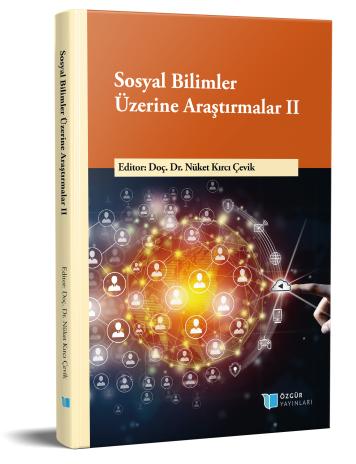
Gürültüye Bağlı İşitme Kaybı ve Sosyo-Ekonomik Etkisi
Şu kitabın bölümü:
Kırcı Çevik,
N.
(ed.)
2023.
Sosyal Bilimler Üzerine Araştırmalar - II.
Özet
Yüksek şiddette gürültüye maruz kalma sonucunda gürültüye bağlı işitme kaybı (GBİK) oluşmaktadır. GBİK, bireylerin iletişim becerilerini sınırlamaktadır. Dolayısı ile bireylerde sosyal strese, depresyona, utanç duygusuna, zayıf benlik saygısına ve ilişki zorluklarına neden olmaktadır. Tüm bu sağlık sorunlarının yanında GBİK, bireyleri ekonomik açıdan da olumsuz etkilemektedir. GBİK'li bireyler, işitme kayıplarını telafi etmek için işitme cihazı kullanmak zorundadır ve sigorta şirketleri işitme cihazı ücretlerini tamamıyla karşılamamaktadır. İşçilerin yanı sıra işverenler ve ülke ekonomileri de GBİK’ten olumsuz etkilenmektedir. Sigorta şirketleri GBİK’li işçilerin sağlık giderlerini ömür boyu karşılamaktadır. Ayrıca ülkeler açısından işitme kayıplı bu işçiler iş gücü kaybına neden olmaktadır. İşverenler ise işitme kaybı oluşan işçilere yüklü tazminatlar ödemek zorunda kalabilmektedir. Sonuç olarak en kolay önlenebilen meslek hastalıklarından biri olan GBİK, başta kalıcı sağlık sorunları olmak üzere iş gücü yitimine, yüklü tazminat durumlarına ve devam eden sağlık giderlerine neden olmaktadır. GBİK hakkında işçilerin bilinçlendirilmesi, koruyucu ekipman kullanmaya yönelik teşvikler ve daha katı sağlık politikaları ile işitme kaybı ve ortaya çıkan tüm bu olumsuz durumlar önlenebilir. Böylelikle işçilerin sosyo-ekonomik; işveren ve devletlerin ekonomik olarak olumsuz etkilenmesinin önüne geçilebilir.

